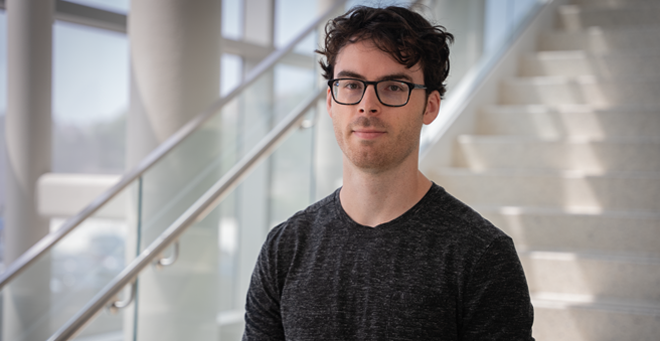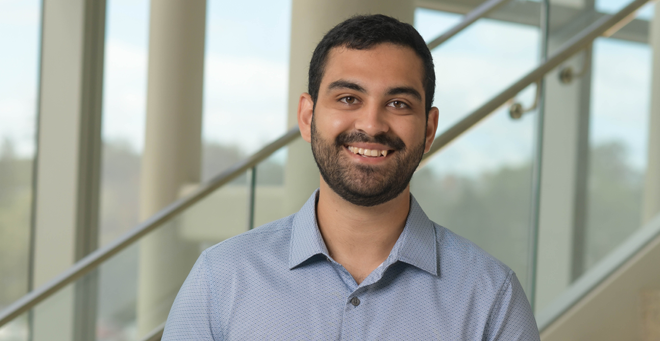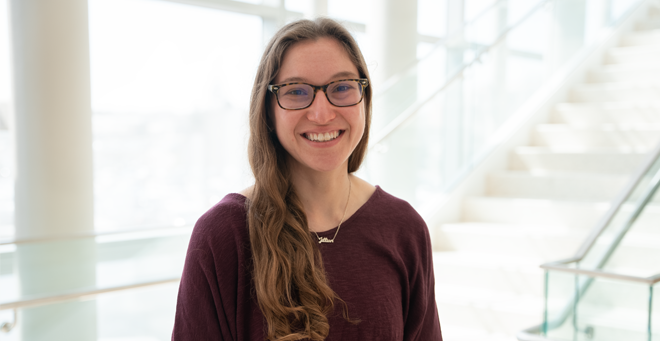
Nicholas Harper, a PhD candidate in the Morningside Graduate School of Biomedical Sciences at UMass Chan Medical School, has received a prestigious Ruth L. Kirschstein National Research Service Award Individual Predoctoral Fellowship from the National Cancer Institute to study cell death as it relates to cancer therapies.
“The goal is to find how to cause cancer cells to die without causing normal cells in a patient to die,” Harper said. “There’s a lot of interest in new drugs that target core cellular processes. The problem with them is you cause patient toxicity. So you can kill cancer cells really well, but it also affects other normal cells in the patient.”
Transcriptional inhibitors are anticancer drugs that act on gene transcription, a core cellular process by which genetic information encoded by DNA is read out in the form of RNA. By turning off transcription, these drugs robustly induce cell death. Harper said the traditional thinking is that cells don’t control cell death following transcriptional inhibition—that cell death is accidental.
“The problem with this thinking is that it means there’s no real rational way to pick which patients should use which drugs,” Harper said. “Our key finding is that cell death is actually very regulated. There are built-in signaling pathways that cells use to sense transcriptional fidelity. And when it goes awry, they send a message to commit cell suicide. We found some key ways that we can perturb, or rewire, a cell and change how it makes that decision in the face of turning off transcription.”
Harper said the hope is that by understanding how cells die, researchers can better develop new drug combinations or drug targets for specific cancers.
“Cancer cells are acquiring mutations that allow them to sense and respond to their environment differently than normal cells. That’s what allows them to grow uncontrollably. Perhaps they’re sensing their transcriptional fidelity in different ways as well, and we just aren’t targeting them in a rational way because we don’t know how these drugs are causing cells to die,” Harper said. “If we establish that it is understandable, we can design drugs in a more rational way, and also predict patient responses in a more rational way; understand which patients will respond well to these drugs.”
Harper was born in Texas and grew up in Wellesley, Massachusetts. He studied mathematics at the University of Vermont, then worked at the Dana-Farber Cancer Institute as a bioinformatician studying breast cancer. He noticed that many of the research papers he was reading were written by UMass Chan faculty—including his current mentor, Michael Lee, PhD, associate professor of systems biology—and enrolled in the Interdisciplinary Graduate Program to work alongside them.
“Nick’s work has revealed an unexpected way in which an important class of anticancer drugs kill cancer cells,” Dr. Lee said. “In the process of making this discovery, he identified a previously unknown stress response pathway. Understanding this new pathway will unquestionably help us improve the specificity of existing drugs and will likely reveal new ways to target cancer cells for destruction.”




